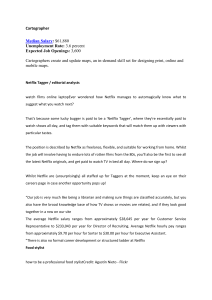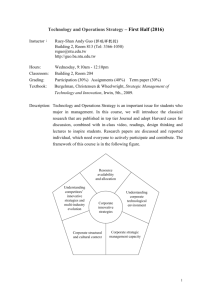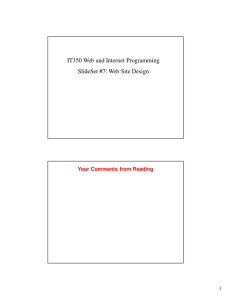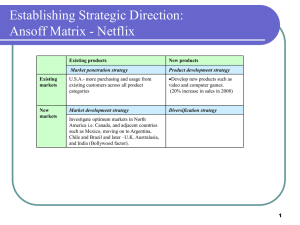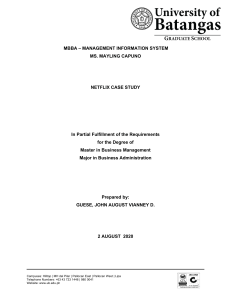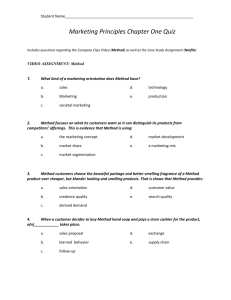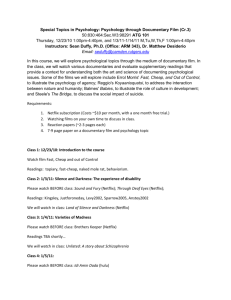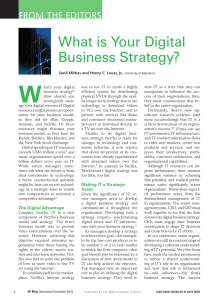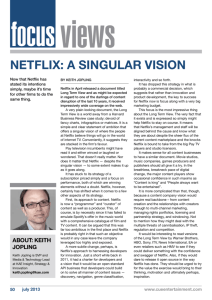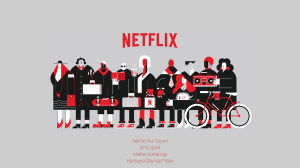Internet Marketing Chapter 7 Lecture Slides
advertisement
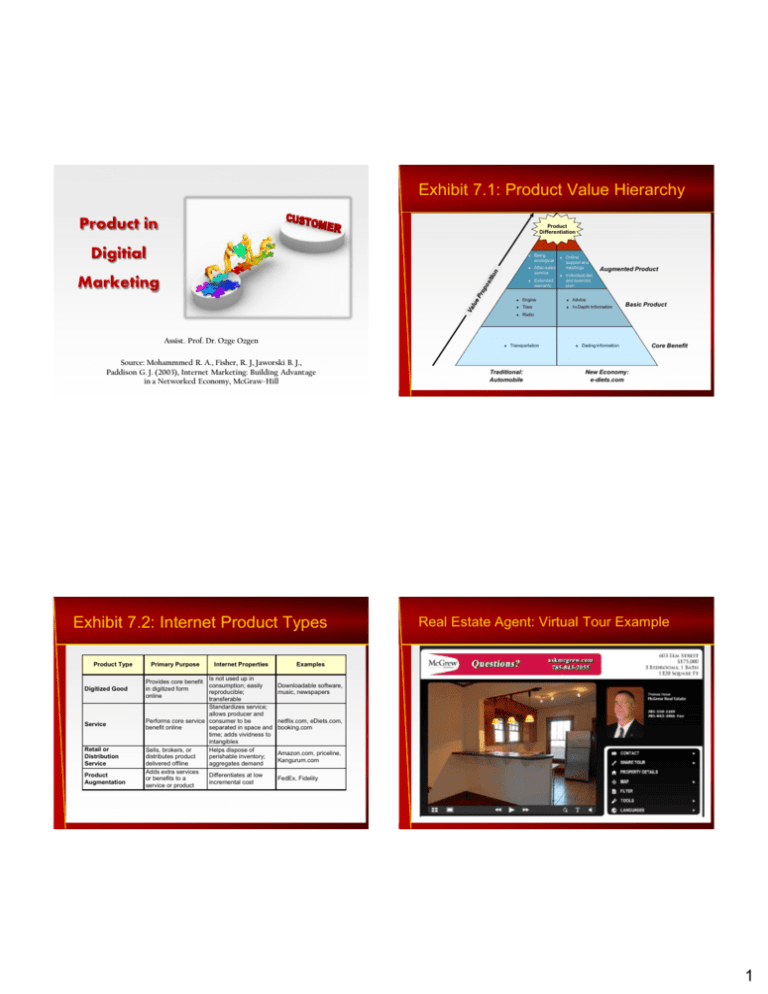
Exhibit 7.1: Product Value Hierarchy Product in Product Differentiation Digitial Marketing Source: Mohammmed R. A., Fisher, R. J, Jaworski B. J., Paddison G. J. (2003), Internet Marketing: Building Advantage in a Networked Economy, McGraw-Hill Exhibit 7.2: Internet Product Types Digitized Good Service Retail or Distribution Service Product Augmentation Being ecological After-sales service Assist. Prof. Dr. Ozge Ozgen Product Type Primary Purpose Internet Properties Is not used up in consumption; easily reproducible; transferable Standardizes service; allows producer and Performs core service consumer to be benefit online separated in space and time; adds vividness to intangibles Sells, brokers, or Helps dispose of distributes product perishable inventory; delivered offline aggregates demand Adds extra services Differentiates at low or benefits to a incremental cost service or product Provides core benefit in digitized form online Extended warranty Online support and meetings Individual diet and exercise plan Augmented Product Engine Advice Tires In-Depth Information Radio Transportation Traditional: Automobile Basic Product Dieting Information Core Benefit New Economy: e-diets.com Real Estate Agent: Virtual Tour Example Examples Downloadable software, music, newspapers netflix.com, eDiets.com, booking.com Amazon.com, priceline, Kangurum.com FedEx, Fidelity 1 PRODUCT AUGMENTATION – Presale support, fulfillment options, postsales support, customer care The Effects of the 2Is on Product Individualization Exhibit 7.7: Product Portfolio None Existing Products Incremental Line Extensions Degree of Innovation Breakthrough or Discontinuous Users can redevelop aspects of the product to meet individual needs and preferences Firms can provide more targeted, personalized products Increases “stickiness” as customers invest time and effort to personalize Enables responsive service interaction to provide augmented value to the product Allows companies to quickly gather valuable customer data such as preferences Customers can be directly involved in the product development process Product Line Extention: Netflix.com New to Firm New to Market New Technology Interactivity The Netflix website launched in April 1998 with an online version of a more traditional pay-per-rental model Netflix introduced the monthly subscription concept in September 1999 Now.... The movies are delivered individually via the United States Postal Service from an array of regional warehouses. As of March 28, 2011, Netflix had 58 shipping locations throughout the U.S New Products 2 Market Adoption Exhibit 7.8: Order of Market Entry Effect Fast Follower “Me Too” Entrant Exhibit 7.10: Stage-Gate New Product Development Process Laggard First to Market Time Netflix’s wrong decision Exhibit 7.14: Product Levers by Relationship Phase On September 18, 2011, Netflix Four Key Stages of Customer Relationships announced its intentions to rebrand and structure its DVD home media Awareness Exploration/ Expansion Commitment Dissolution rental service totally separating DVD rentals Core benefit Presentation and packaging Presentation and packaging Attributes and features Presales support Fulfillment Availability of complementary products Customer-specific attributes and features and streaming independent subsidiary company called Qwikster The announcement led to a flurry of negative reception at Netflix's Upgrades Customer-specific attributes and features Post-sales support Tiered service Personalization Customer care Migration to different product in the portfolio Customer care Facebook and Twitter pages... 3 4
